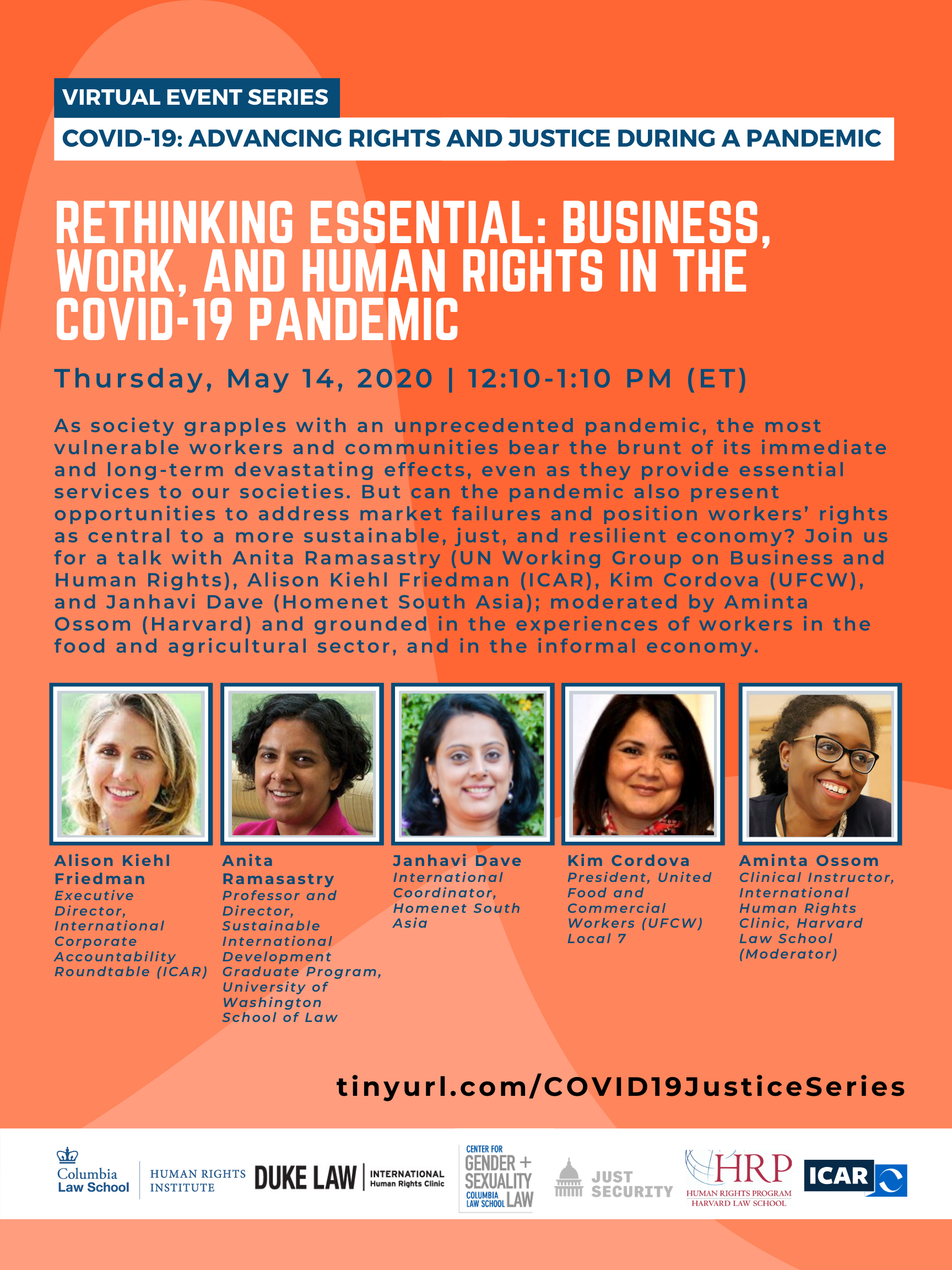Rethinking Essential: Business, Work, and Human Rights in the Covid-19 Pandemic
May 14, 2020 • 12:10 PM • Virtual
As society grapples with an unprecedented pandemic, the most vulnerable workers and communities bear the brunt of its immediate and long-term devastating effects, even as they provide essential services to our societies. But can the pandemic also present opportunities to address market failures and position workers' rights as central to a more sustainable, just, and resilient economy? Join us for a talk with Anita Ramasastry (UN Working Group on Business and Human Rights), Alison Kiehl Friedman (ICAR), Kim Cordova (UFCW), and Janhavi Dave (Homenet South Asia); moderated by Aminta Ossom (Harvard) and grounded in the experiences of workers in the food and agricultural sector, and in the informal economy. To view the program, visit tinyurl.com/COVID19JusticeSeries for instructions on accessing the event through Zoom. Sponsored by Duke Law International Human Rights Clinic, Columbia Law School Human Rights Institute, Columbia Law School Center for Gender & Sexuality Law, and Just Security. For more information, contact Balfour Smith at bsmith@law.duke.edu.
This program is part of the ongoing "COVID-19: Advancing Rights and Justice During a Pandemic" series. Sponsored by the Duke Law International Human Rights Clinic, the Columbia Law School Human Rights Institute, the Columbia Law School Center for Gender & Sexuality Law, and Just Security. Co-sponsored by Center for Human Rights and Humanitarian Law, American University Washington College of Law; Center for International Human Rights Law and Advocacy, University of Wyoming College of Law; Center for International Human Rights, Northwestern’s Bluhm Legal Clinic; Cornell International Human Rights Clinic: Litigation and Advocacy; Duke Environmental Law and Policy Clinic; Georgetown Law Human Rights Institute; Human Rights Center, University of Dayton; Human Rights Center, University of Minnesota Law School; Human Rights Program, Harvard Law School; Human Rights Watch; Institute for the Study of Human Rights, Columbia University; International Commission of Jurists; International Human Rights Clinic, University of Chicago Law School; International Human Rights Law Clinic, UC Berkeley; Open Society Justice Initiative; Opinio Juris; Program on Human Rights and the Global Economy, Northeastern Law School; Promise Institute for Human Rights, UCLA; Robert F. Kennedy Human Rights; Tanner Humanities Center, University of Utah.
